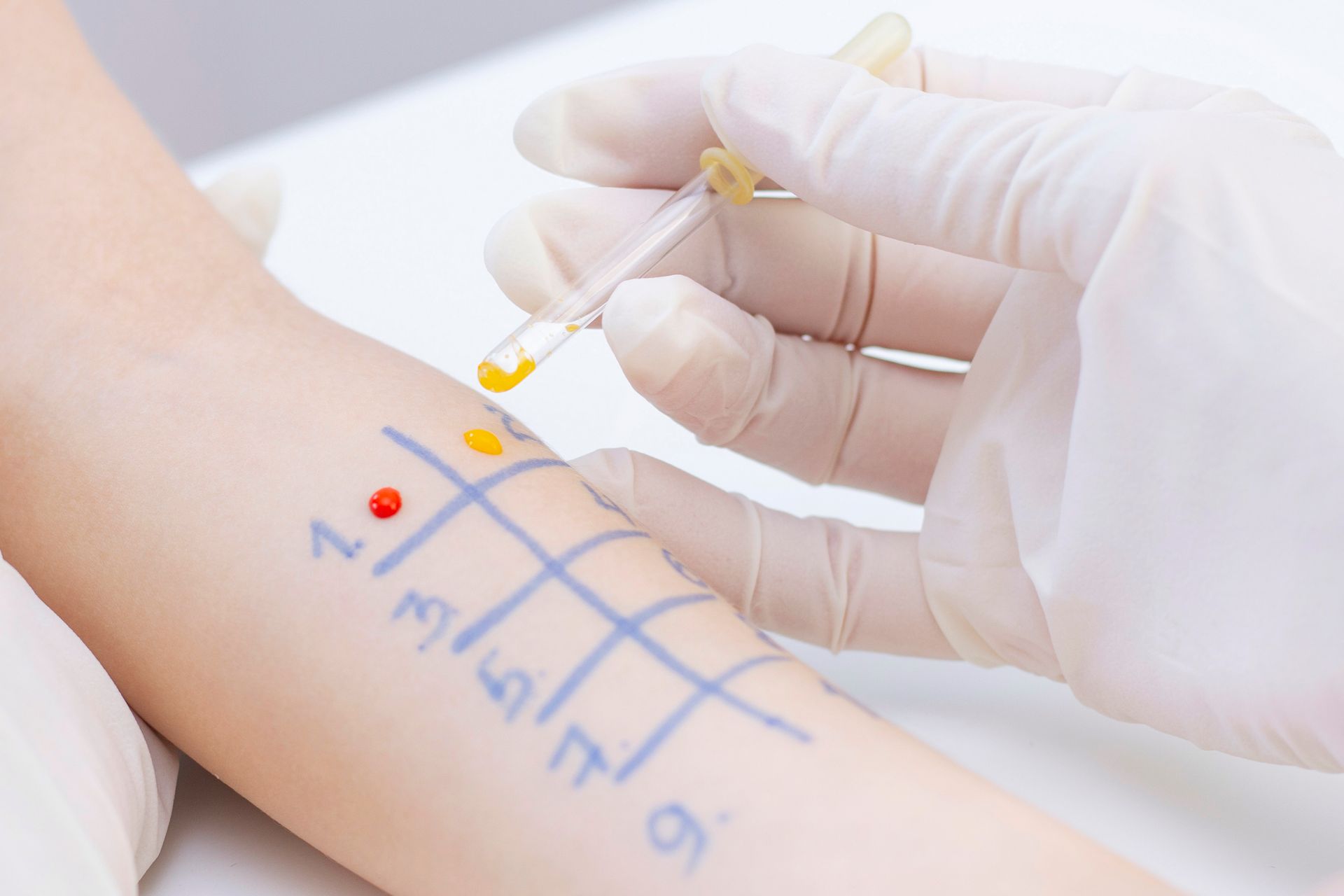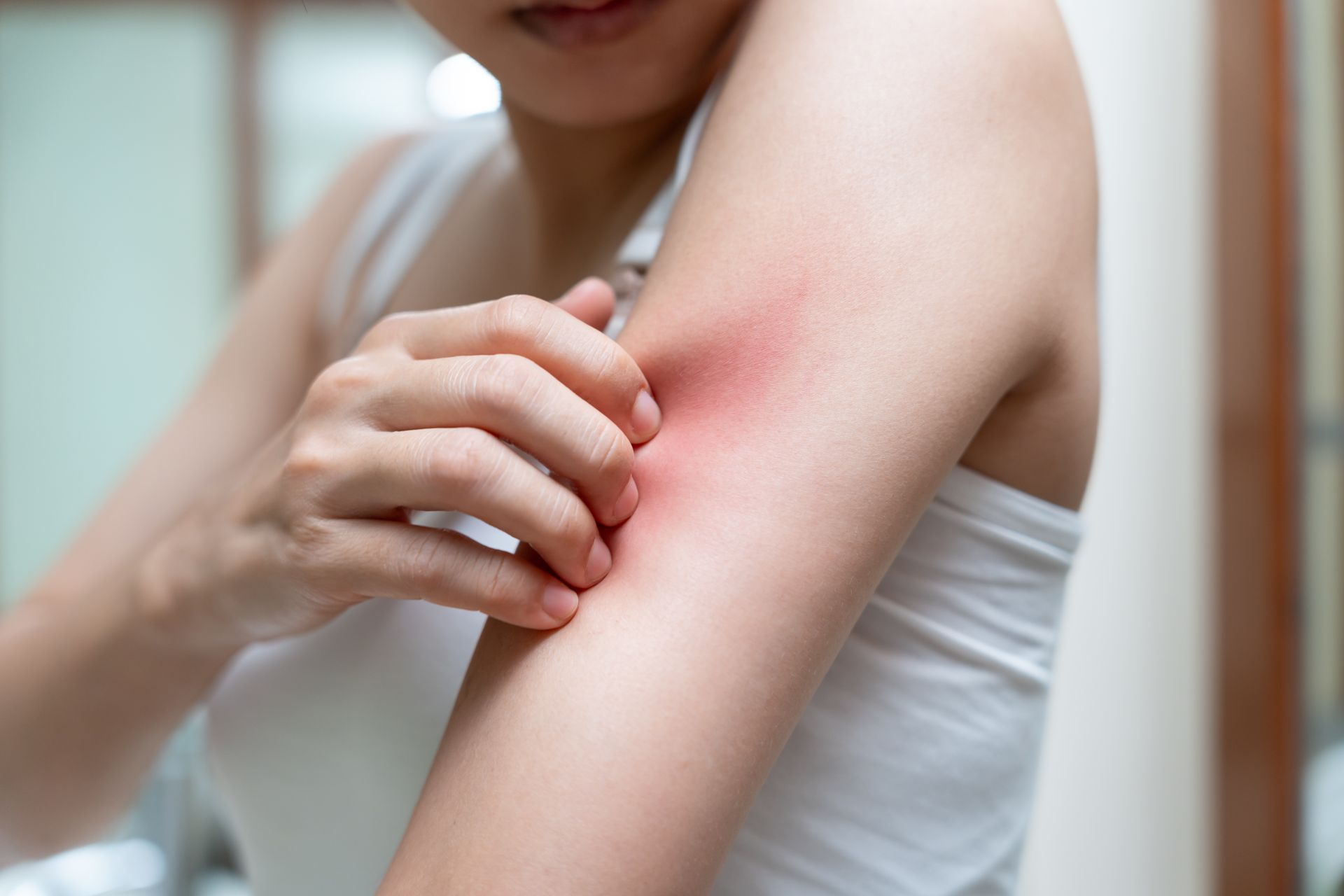What Is Urticaria? Everything You Need to Know About Hives
Imagine waking up one morning with your skin covered in itchy, red welts that seem to pop up out of nowhere. Millions worldwide grapple with urticaria, more commonly known as hives.
Urticaria appears as itchy, raised bumps on your skin and can be triggered by everything from allergies to environmental changes. Whether you've experienced hives symptoms or are just starting to learn about them, awareness about the condition and how to manage it is essential.
In this blog, we will explore everything you need to know about urticaria, including its causes, symptoms, types, and ways to find relief.
Urticaria Affecting Your Daily Life?
What Is Urticaria?
Definition
Urticaria (hives) is a common skin condition marked by the sudden appearance of itchy, raised welts on the skin. These welts can be red, pale, or surrounded by a flare of redness and may vary in size.
Symptoms
Recognizing hives can be easier when you know what to look for. Typically, the welts on your skin will appear:
- Red or pink
- Raised and sometimes swollen
- Itchy and uncomfortable
Causes
Several factors can trigger urticaria, including:
- Common allergens (e.g., foods, medications, or insect stings)
- Viral or bacterial infections
- Changes in environmental factors (e.g., temperature or sunlight)
Types of Urticaria
Urticaria comes in several forms, each with its causes and characteristics:
Acute vs. Chronic Urticaria
Acute urticaria, typically lasting for less than six weeks, is often triggered by allergic reactions to insect bites, medications, infections, or certain foods. On the other hand, chronic urticaria extends beyond six weeks, making it more difficult to pinpoint the underlying cause.
Chronic Spontaneous vs. Inducible Urticaria
There are two types of chronic urticaria: chronic spontaneous urticaria (CSU) and chronic inducible urticaria (CIndU). CSU occurs when hives appear without a clear trigger, while specific physical stimuli or environmental factors trigger CIndU.
Types of Chronic Inducible Urticaria
- Dermographism: Caused by skin friction or pressure
- Delayed Pressure Urticaria: Results from prolonged pressure, often appearing 4-6 hours after contact
- Cold Urticaria: Brought on by exposure to cold temperatures
- Heat Urticaria: Triggered by exposure to heat
- Solar Urticaria: Induced by sunlight or UV rays
- Cholinergic Urticaria: Occurs due to body warming or sweating
- Exercise-Induced Urticaria: Caused by physical activity
- Aquagenic Urticaria: Results from contact with water
- Contact Urticaria: Triggered by skin contact with external substances
- Vibratory Urticaria: Induced by vibration
Other rare types include papular urticaria, urticaria pigmentosa, and urticaria vasculitis.
Diagnosing Urticaria
When diagnosing urticaria, your doctor will review your medical history and conduct tests to identify the cause of your hives. Here’s what you can expect:
Medical History
A thorough medical history is key in diagnosing urticaria. Be prepared to share details about:
- Symptoms: Onset, duration, and characteristics of the hives (e.g., itching, size, and location)
- Triggers: Potential environmental factors, food, medications, or recent infections
- Associated Symptoms: Signs that may indicate anaphylaxis (e.g., difficulty breathing, swelling, or gastrointestinal symptoms)
- Medication Use: Recent changes in medications or supplements
- Family History: History of urticaria or allergic conditions in the family
Diagnostic Tests
While diagnosing urticaria relies on clinical evaluation, specific tests may help identify underlying causes, especially in chronic cases. These may include:
- Allergy Tests: Skin prick or blood tests (e.g., RAST) for suspected allergies
- Blood Work: Complete blood count (CBC), C-reactive protein (CRP), and other tests to rule out systemic issues
- Autologous Serum Skin Test (ASST): Used for chronic spontaneous urticaria to check for autoimmune factors
- Inducible Urticaria Tests: Exposure tests to confirm triggers like cold or pressure
Hives Treatment Options
Remedy options for urticaria vary based on the severity and duration of the condition. Here’s an overview of the different urticaria treatments available:
Over-the-Counter Solutions
For mild cases, these are the over-the-counter hives medications that can provide relief:
- Antihistamine for Hives: Anti-allergy medication can calm the immune response, easing itching and inflammation.
- Anti-Itch Creams: Topical treatments containing ingredients like hydrocortisone can soothe the skin.
Prescription Medications
For cases that don't respond to initial urticaria treatment, your allergist may suggest:
- Corticosteroids: Short-term use of corticosteroids can relieve severe symptoms and acute flare-ups, but long-term use is avoided due to potential side effects.
- Immunosuppressants: Anti-rejection drugs can help manage hives when autoimmune factors are at play by suppressing the immune system’s response.
When Should I See an Allergist Near Me?

Knowing when to seek medical attention for urticaria ensures your safety and the effective management of your condition. Contact allergy specialists like Advanced Allergy and Asthma Care under these circumstances:
Emergency Symptoms
Here are the warning signs that signal a medical emergency and require urgent attention:
- Difficulty Breathing
- Swelling of the Face or Throat
- Rapid Heartbeat or Dizziness
- Severe Itching or Pain
Chronic Management
Consider seeking healthcare advice for chronic management if these hives symptoms arise:
- Persistent Hives
- Ineffective Standard Treatments
- Additional Symptoms
- Decreased Quality of Life
If you experience any of these symptoms, a quick online search for “best doctor for urticaria near me” or “hives specialist near me” can help you find immediate medical assistance.
Find Relief from Urticaria with Advanced Allergy and Asthma Care Specialists
Dealing with hives can feel like an endless struggle, with those sudden, itchy breakouts popping up out of nowhere and disrupting your daily life. However, understanding what triggers these reactions and having a reliable team to support you can make a difference in handling the condition.
At Advanced Allergy and Asthma Care, our dedicated allergists are here to help you reclaim your comfort and well-being. We’ll work closely with you to craft a personalized care plan, addressing your symptoms and helping you find relief.
Don’t let hives take over your life. Reach out to us for the support and relief you deserve. Call Advanced Allergy and Asthma Care today at (727) 544-8100 or (813) 476-3394 to book an appointment.
Don’t Wait for Urticaria to Get Worse




